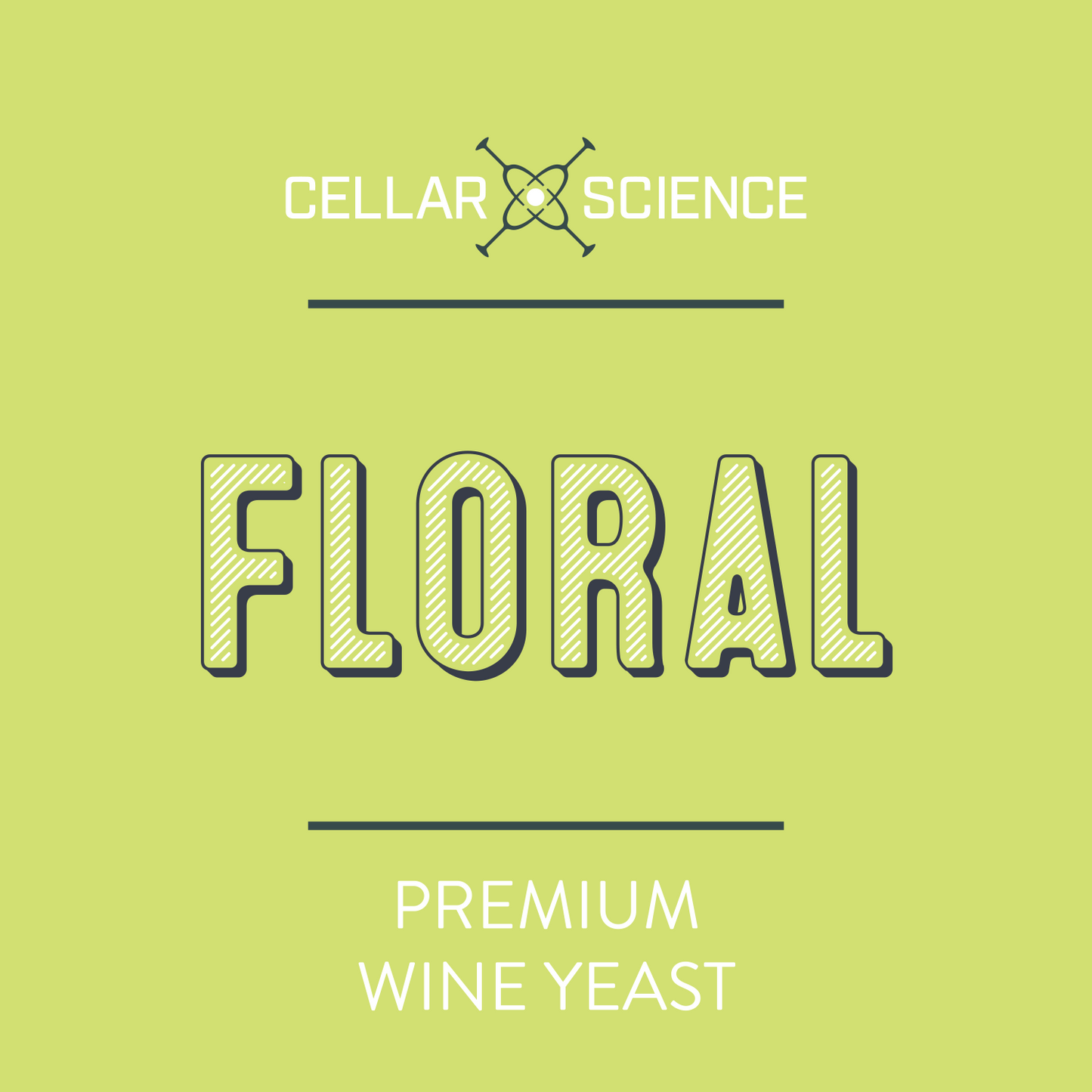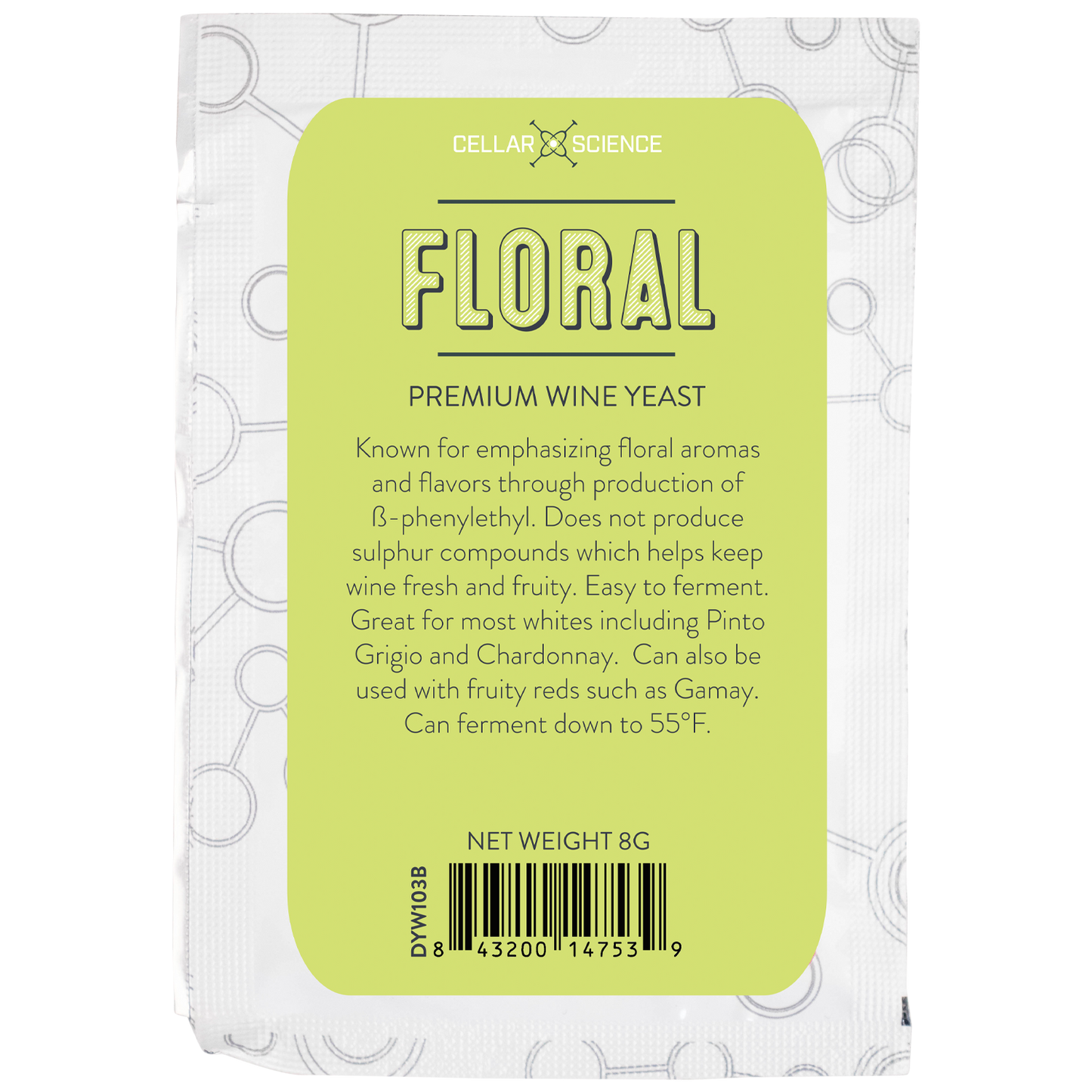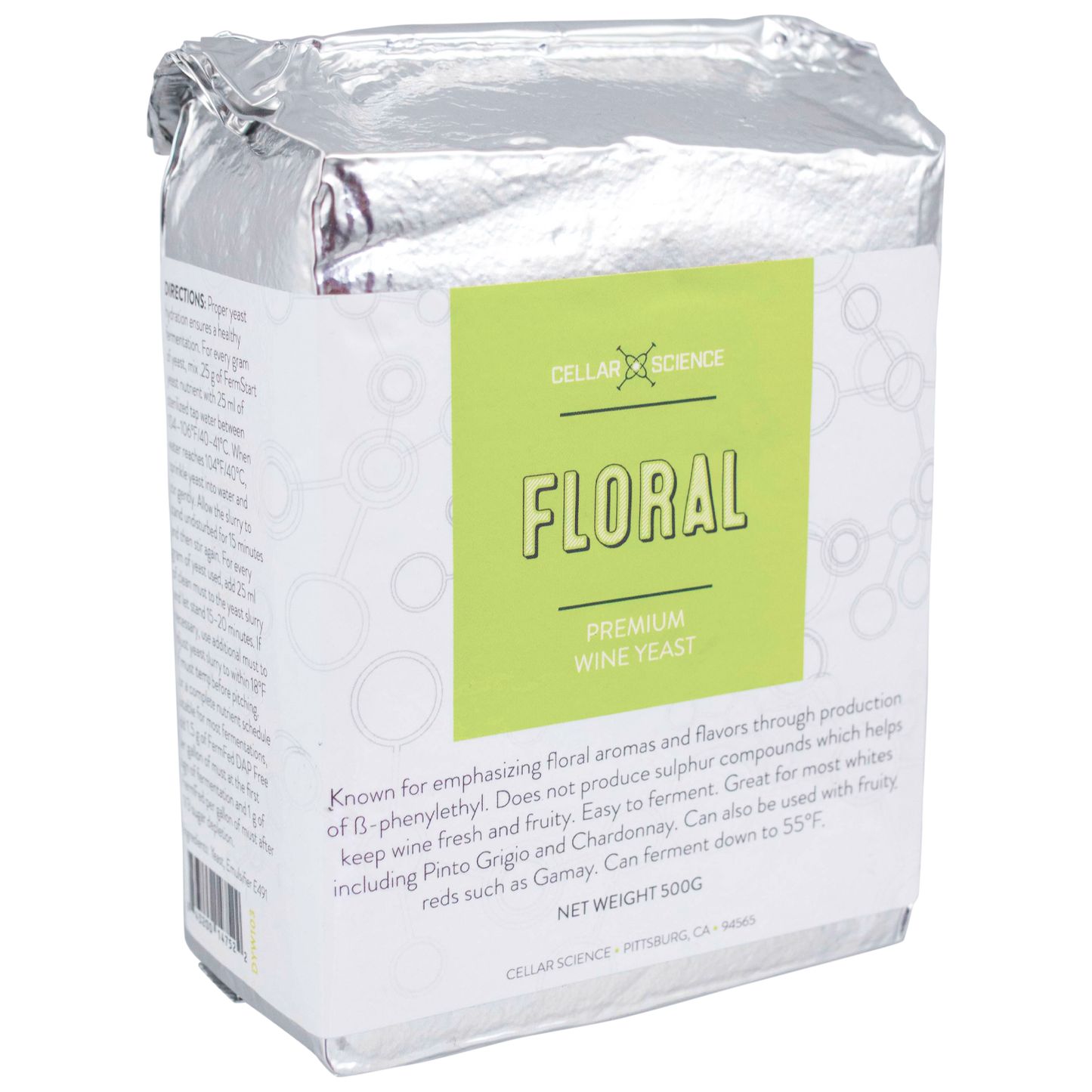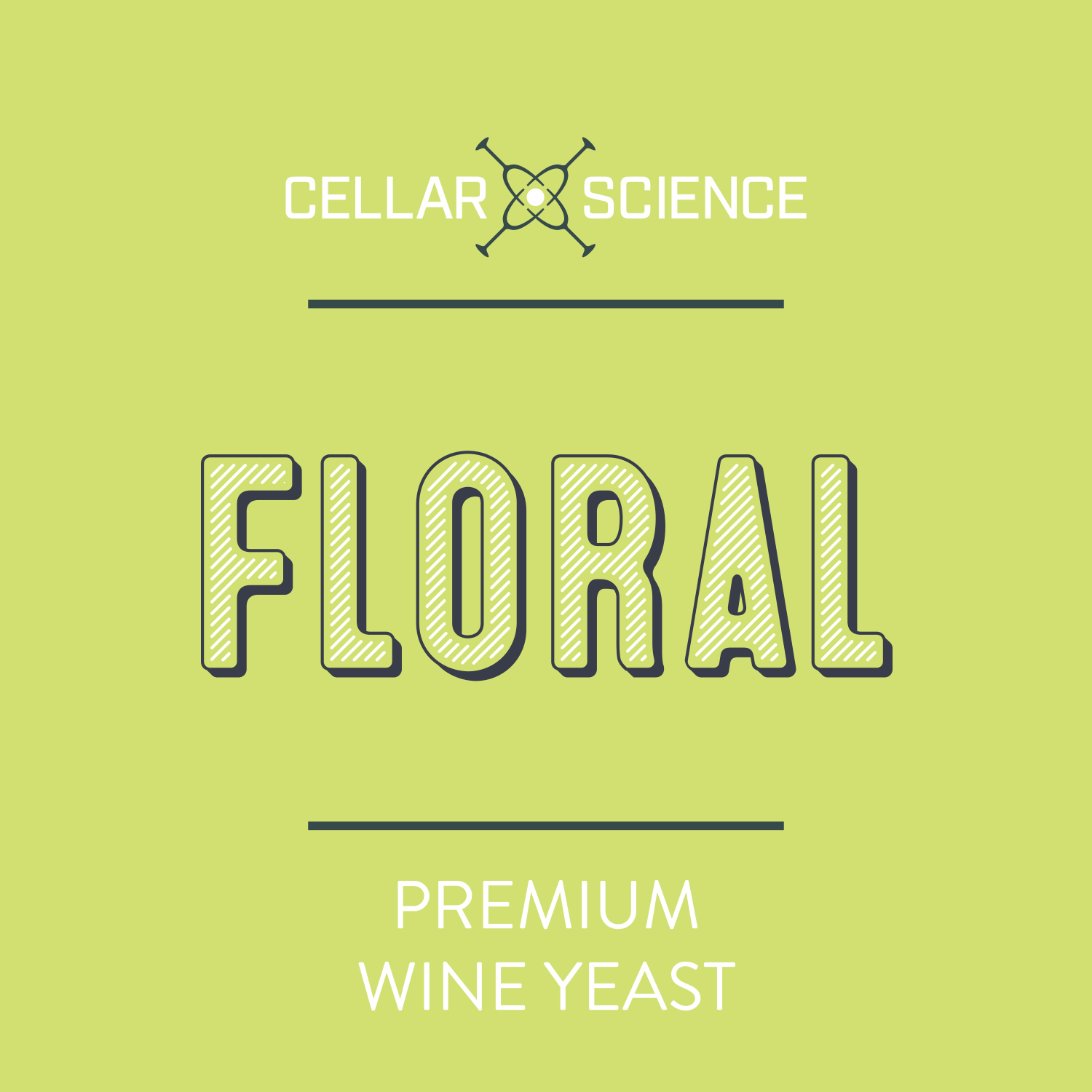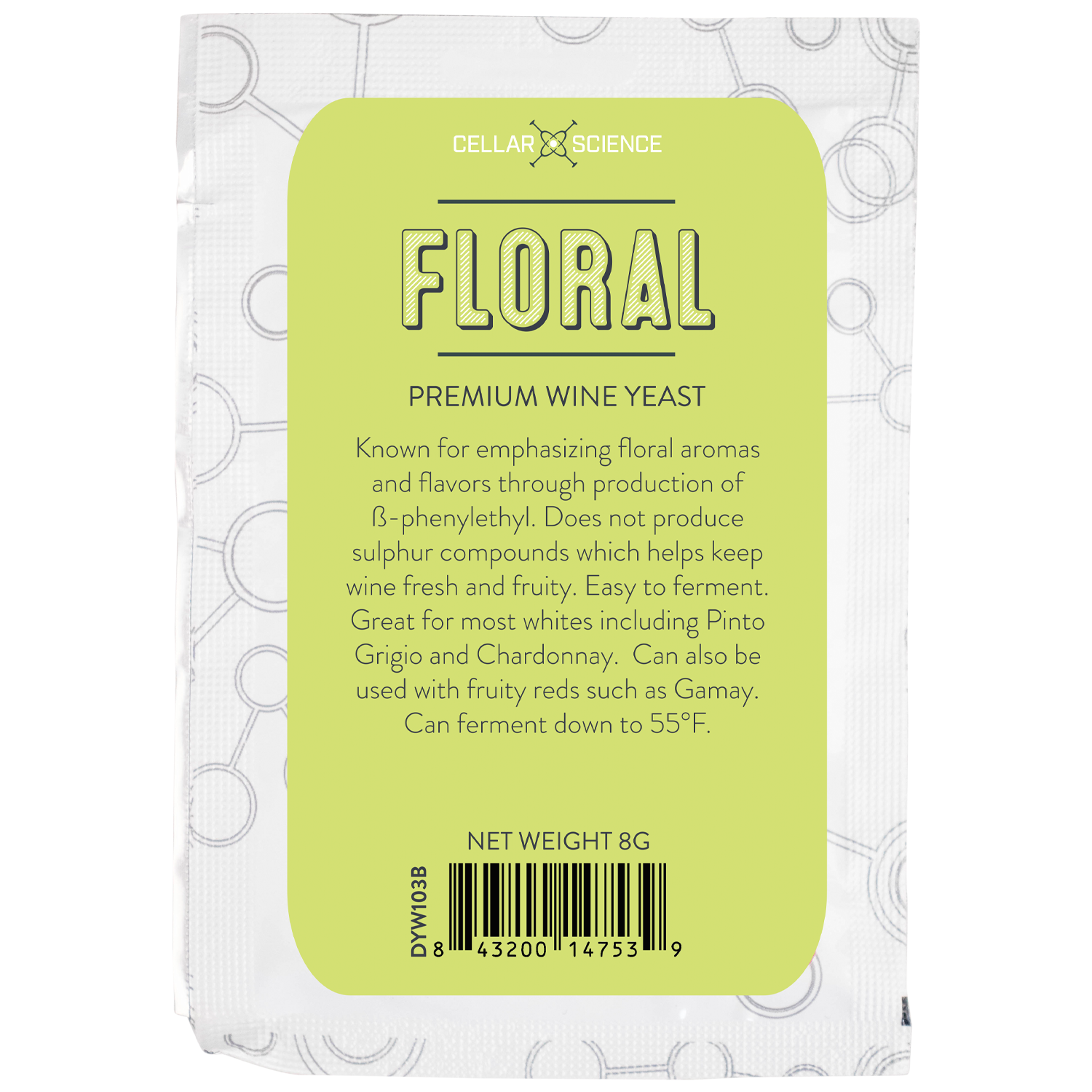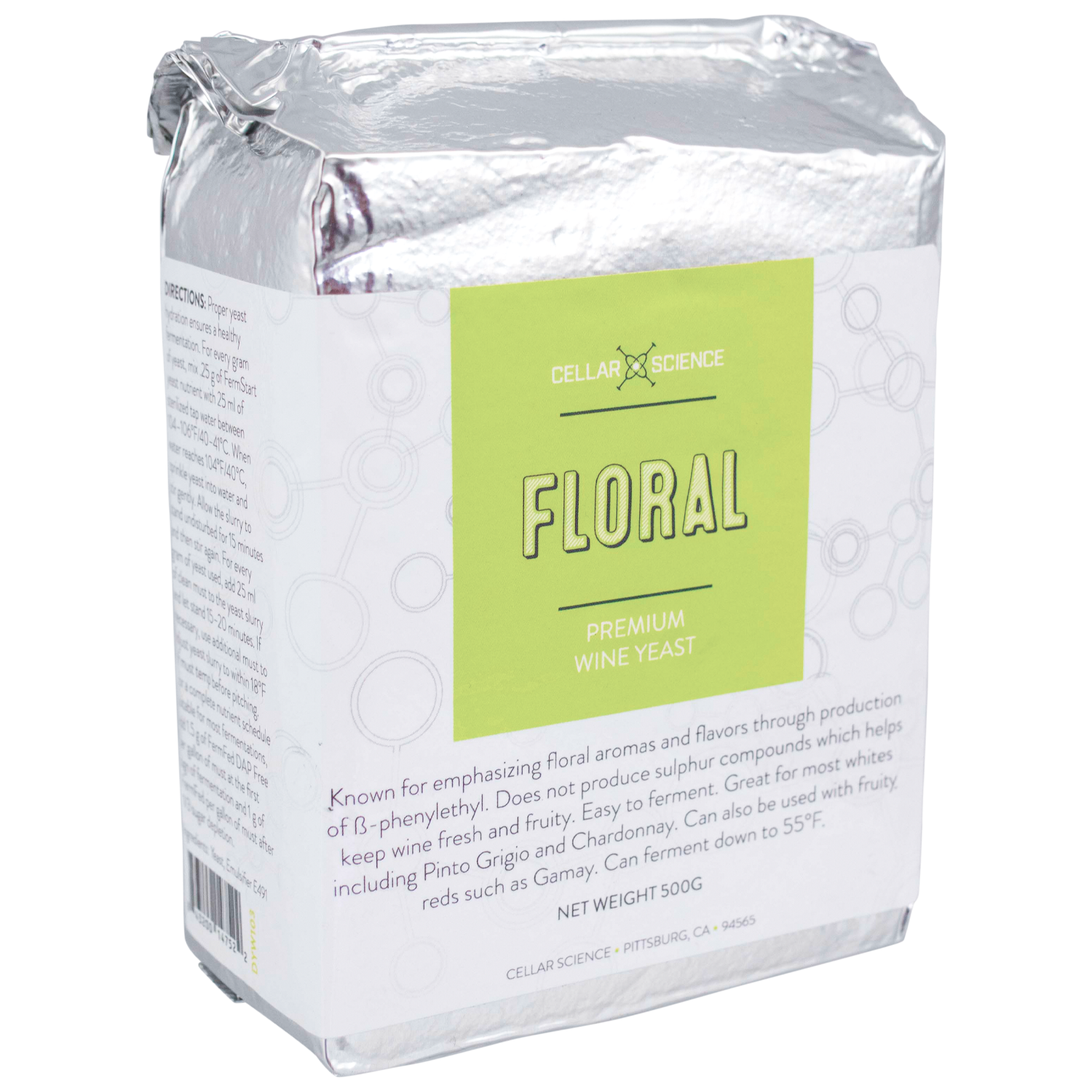Cellar Science
FLORAL Dry Wine Yeast
FLORAL Dry Wine Yeast
- Very low H2S producer which naturally allows fruit to shine through
- Cerevisiae/Bayanus hybrids strain
- Huge aromatics of floral and Citrus
FLORAL is a natural hybrid between Cerevisiae and Bayanus allowing it to ferment at lower temperatures. Its famous for producing a wide range of flavors to add depth and complexity to any wine. FLORAL cannot assimilate sulfur which greatly reduces H2S making it an easy yeast to see through fermentatoin. Low H2S and volatile acidity part of the secret to emphasizing fresh fruit flavors. The production of phenylethyl alcohol and its derivative ß-phenylethyl adds sweet floral notes. Phenylethyl alcohol also helps extract thiols due to their similar polarity, contributing even more to citrus and floral flavors. A hugely aromatic yeast that is easy to ferment. Great for any whites or fruity reds where a floral charateristic is desired. First choice for Italian whites like Pinot Grigio. Can ferment down to 55°F.
Start Time: Average
Alcohol Tolerance: 15%
Nitrogen Demand: Low
YAN Requirement @ 23 Brix: 200 ppm
Production of volatile acidity: Very Low
Production of SO2: Low
Cap/Foaming: Very low
Ease to Ferment with MLF: Average
Lees Aging: Good Choice
Yeast Type: Hyrbid Bayanus/Cervisiae
Optimal Fermentation Temp: 50–65°F
Optimal Fermentation Temp: 50–65°F
Proper yeast hydration helps ensure a healthy fermentation. For every gram of yeast, mix .25 g of FermStart yeast nutrient with 25 ml of sterilized tap water between 104–106°F/40–41°C. When water reaches 104°F/40°C, sprinkle yeast into water and stir gently. Allow the slurry to stand undisturbed for 15 minutes and then stir again. For every gram of yeast used add 25 ml of clean must to the yeast slurry and let stand 15–20 minutes. If necessary, use additional must to adjust yeast slurry to within 18°F of must temp before pitching. For a complete nutrient schedule sufficient for most fermentations, add 1.5 g of FermFed DAP Free per gallon of must at the first sign of fermentation and 1 g of FermFed per gallon of must after 1/3 sugar depletion.
